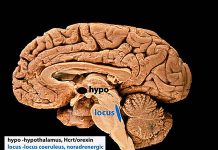
Alzheimer’s disease is a scary condition that affects the mind.
It can make people forget things, from little stuff like where they put their keys to big stuff like who their loved ones are.
It’s a tough disease to fight, and we don’t have many weapons against it. But here’s some good news – a new medicine named Donanemab might help.
Alzheimer’s Disease and Donanemab: What’s the Link?
Alzheimer’s disease happens when sticky stuff called amyloid plaques and tau tangles build up in the brain.
Think of them like traffic jams in your head that slow everything down. Donanemab is a medicine that scientists designed to clean up these traffic jams.
A Big Test for Donanemab
Scientists wanted to see how well donanemab works. They ran a big test at 277 hospitals and research centers in 8 countries.
From June 2020 to November 2021, they found 1736 people with early signs of Alzheimer’s. The people had trouble with their memory but could still do everyday things.
Half of these people got donanemab through a drip in their vein every four weeks for about a year and a half.
The other half got a pretend treatment called a placebo. The scientists kept everything fair by making sure nobody knew who got what.
They had a special way to measure how well the people’s minds were working. It’s called the “iADRS” scale, where 0 is the worst and 144 is the best. A lower score means more problems with memory and thinking.
So, How Did Donanemab Do?
At the end of the test, the results were promising! The people who got donanemab did better than those who got the placebo.
On average, their scores went down by about 6 or 10 points over a year and a half, depending on how much sticky stuff they had in their brains at the start. The scores of the people who got the placebo went down more, by about 9 or 13 points.
This means that the people who got donanemab had slower memory loss. They didn’t get cured, but their Alzheimer’s didn’t get worse as quickly.
They also looked at another measure, the “CDR-SB” scale, where 0 is the best and 18 is the worst. Again, people who got donanemab did better.
Their scores went up less than those who got the placebo, meaning they had slower progression of the disease.
Was Donanemab Safe?
Most medicines have side effects, and donanemab is no exception. Some people who got it had problems like swelling in their brains or reactions to the treatment.
These problems happened to more people who got donanemab than those who got the placebo.
Sadly, three people who got donanemab and one who got the placebo died during the test. The scientists think the deaths might be related to the treatment, but they’re not sure.
What Does This All Mean?
This test gives us hope that donanemab can help slow down Alzheimer’s disease in people who are just starting to have symptoms. It seems to work best in people who don’t have a lot of the tau tangles in their brains yet.
Of course, more tests are needed to confirm these results and to figure out how best to use donanemab. Also, scientists need to keep an eye on the side effects to make sure it’s safe.
But all in all, donanemab could be a new weapon in our fight against Alzheimer’s. We’re not there yet, but every step brings us closer to beating this tough disease. So let’s keep hoping and fighting. For ourselves, and for our loved ones.
If you care about Alzheimer’s, please read studies about Vitamin D deficiency linked to Alzheimer’s, vascular dementia, and Oral cannabis extract may help reduce Alzheimer’s symptoms.
For more information about brain health, please see recent studies about Vitamin B9 deficiency linked to higher dementia risk, and results showing flavonoid-rich foods could improve survival in Parkinson’s.
The study was published in JAMA Network Open.
Follow us on Twitter for more articles about this topic.
Copyright © 2023 Knowridge Science Report. All rights reserved.



